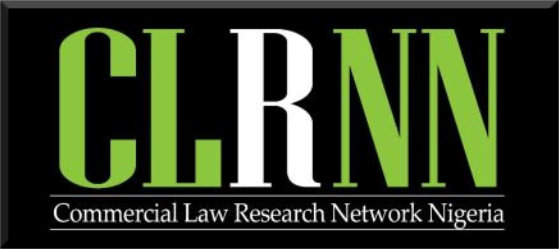by Mr Okorie Kalu
Introduction
 In a bid to create an enabling environment for investment and ease up constraints attached to doing business in Nigeria, the Presidential Enabling Business Environment Council (PEBEC) was set up in July 2016, along with the Enabling Business Environment Secretariat (EBES).
In a bid to create an enabling environment for investment and ease up constraints attached to doing business in Nigeria, the Presidential Enabling Business Environment Council (PEBEC) was set up in July 2016, along with the Enabling Business Environment Secretariat (EBES).
The establishment of PEBEC was a positive feedback from the Government towards collaborating with its international partners, the World Bank, on entrenching modalities for ease of doing business in Nigeria. It was primarily established to remove critical bottlenecks and constraints to doing business in Nigeria; hence, make the country a progressively easier place to do business and thrive.
The activities of PEBEC towards achieving above mandate included:
- The approval of a 60-day National Action Plan (NAP) on February 21, 2017 to be implemented by Ministries, Departments and Agencies (MDAs) in respect of areas or business indicators such as starting a business, dealing with construction permits, accessing electricity, registering property, accessing credit, etc;
- Advising on 3 Executive Orders by May 18, 2017 to promote transparency and efficiency in the business environment;
- Promoting, on the legislative front, the initiation of bills to improve the ease of doing business and strengthen the enforcement of creditors rights. To these ends, the Credit Reporting in 2017 and the Secured Transactions in Moveable Assets Act (“Collateral Registry Act and Credit Reporting Act”) was passed;
- An Omnibus Law on Nigerian Business Climate Project was also commenced pursuant to Federal Government/world bank collaboration to achieve ease of doing business through reforms and improve Nigeria’s ranking;
- A 2nd NAP from October 3rd to Dec 1st 2017; and
- A 3rd NAP from February – April 2018 with the goal of sustaining the Ease of Doing Business reforms in the Nigerian business environment.
Regulatory Challenges
One of the legislative frameworks for regulating the Nigerian business environment was the Companies and Allied Matters Act 2004 (“CAMA”).
CAMA 2004 was the general company law which covered corporate insolvency, one of the 14 key business indicators to be worked upon to achieve ease of doing business in Nigeria. The said law together with connected subsidiary legislations or special laws provided an antiquated, liquidation-biased, ineffective and uncertain framework for insolvency and collective debt resolution, protection and enforcement of creditors’ rights.
This lack of versatility was to be addressed along with other ease of doing business indicators in the Omnibus Bill Project, which involved the creation of more robust voluntary and involuntary judicial reorganization or extra-judicial procedures; improvement of versatility of existing restructuring tools, strengthening of the moratorium culture in business rescue in Nigeria, capacity building through regulation of insolvency practice, and the introduction of a cross-border framework, amongst other things.
PEBEC made extensive recommendations in a report dealing with reforms in all the 14 business indicators it had identified, including starting businesses, the enforcement of contracts and response to insolvency. To improve the enforcement of contracts, it recommended, amongst other things, the introduction of Practice Directions and Regulations from the Courts to fast-track cases. The recommendations relating to insolvency included but are not limited to the use of suitable and focused business rescue language, development of a new culture allowing greater accommodation of a Debtor-In-Possession (DIP) approach and debtor cooperation; accommodation of certain critical supplier concepts where possible; clarifications in relation to ranking in priority; clarifications in relation to fixed and floating charges; phasing out of receivership; training of judicial officers to ensure prompt conclusion of insolvency matters amongst several others. These recommendations ultimately formed the basis of some of the reforms done with the review of CAMA 2004 when the Omnibus Law project failed to retain the speed it initially had in terms of turning the legislative wheel of reform in Nigeria.
Regulatory Reform
In line with these important recommendations of PEBEC, CAMA 2004 was amended by CAMA 2020, which was assented to by President Muhammadu Buhari on 7 August 2020.
It provides, amongst other things, for more business rescue options such as Administration which sought to substantially eliminate receivership, and Company Voluntary Arrangement (CVA). It also provides for netting and increased the threshold for petitioning for the liquidation of an insolvent company from 2000 Naira to 200,000 Naira. Finally, it provides for the regulation of Insolvency Practitioners and empowers the Corporate Affairs Commission (“CAC”) with authority to confer recognition on a professional body, where such a body regulates the practice of a profession, as well as maintains and enforces rules for securing that its members are (a) permitted to act as Insolvency Practitioners; (b) fit and proper persons; and (c) meet acceptable requirements as to education, practical training and experience. Through powers provided in section 706, the Commission may revoke such recognition where the professional body no longer upholds the foregoing requirements in the eyes of the Commission.
Section 705 CAMA 2020 stipulates the criteria for recognition as an Insolvency Practitioner in Nigeria. Such a person must have (a) obtained a degree in law, accountancy or any of the disciplined named therein (b) possessed at least 5 years of post-qualification experience in matters relating to insolvency (c) is authorized by virtue of his certified membership of the Business Recovery and Insolvency Practitioners Association of Nigeria(BRIPAN) or any such body recognized by the Commission and (d) hold an authorization granted by the Commission.
Concluding Remarks
With the drive by PEBEC to create a sustainable environment for ease of doing business in Nigeria, the enactment of CAMA 2020 would greatly contribute to eliminating the bottlenecks and constraints prevalent in some areas/business indicators, particularly obtaining credit and resolving insolvency.
The new CAMA has now entrenched more business rescue options as opposed to the erstwhile procedures skewed towards terminating a company as a going concern. Despite the contributions by CAMA 2020, there is still need for relevant reforms in other areas/business indicators such as dealing with construction permits, getting electricity, registering property, paying taxes, The Finance Act 2020 amended about 14 substantive legislations and introduced major tax reforms to the benefit of the taxpayers, enforcing contracts, trading within Nigeria, as well as trading across border, particularly as Nigeria ratified the African Continental Free Trade Area Agreement (AfCFTA) effective from January 1, 2021. It is also noted that other relevant regulations such as the Winding Up Rules, Companies Proceedings Rules are yet to be amended. Perhaps the enactment of an Omnibus law with new provisions and amendment to existing laws would better fast track targeted reforms on ease of doing business in Nigeria[1].
[1] The failed Omnibus bill was on business facilitation, same being a single encompassing bill designed to remove irritants by amending provisions of about 30 existing legislative framework that have been identified as bottlenecks for business reforms in the extant laws, institutionalize the business reforms already achieved by PEBEC reforms, codify new rules and directives for agencies.
Mr Okorie Kalu is a Partner and Head of the Insolvency and Continuous Training/Education Department at PUNUKA Attorneys & Solicitors. He is also General Secretary, Business Recovery and Insolvency Practitioners Association of Nigeria (BRIPAN), and an INSOL Fellow.

